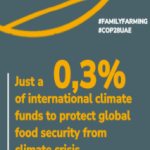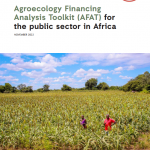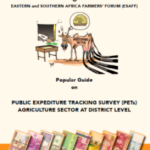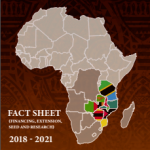Zambian top party official joins climate justice activists to rule out GM crops

01/04/2012
An official of Zambia’s ruling party has reiterated his country’s opposition to the introduction of genetically modified crops in the country.
During a media breakfast meeting in Lusaka on March 29, 2012 the Patriotic Front Secretary General Mr Wynter Kabimba said that the PF Government will not allow the introduction of Genetically Modified Organisms (GMOs) in Zambia because they pose a danger to food security and the environment.
Mr Kabimba said it is now known that GMOs have a negative effect on the health of people and on the environment. Hence why would anyone want to introduce a technology that puts a whole population’s health at risk?
He also spoke against the promotion of foreign solutions that only benefit multinational corporations and whose long term effects on the environment and on the health of our people are not known.
He emphasised the need to foster national food security through crop diversification at household level as opposed to the current mono-cropping of maize.
Expressing excitement by the top ruling party official, Simon Mwamba, Country Coordinator of Eastern and Southern Africa small-scale Farmers Forum (ESAFF) Zambia said the stance taken by the PF Government is welcome.
He said Zambians are already feeling the harmful effects of relying on the multinationals.
“Every year prices of seeds go up but farmers profits continue to plummet. Companies make profits from seeds that they have patented despite the fact the germplasm (material) used to produce these seeds came from farmers who continue to wallow in poverty’’, he said.
The price of GM seeds is many times higher than hybrid seeds.
Mary Sakala, ESAFF Secretary for Capacity Building added: ‘‘There is need to raise awareness among small-scale farmers at village level on the need to safeguard their agrobiodiversity and to guard against loss or contamination of their traditional varieties that have sustained them for generations’’
Under the banner of the Alliance for Agro-ecology and Bio-diversity Conservation, the CSOs are delighted that the Patriotic Front supports ecologically sound and economically viable agriculture and resolved to work with the Government to promote low external input ecological agriculture and research which builds on the knowledge and seed sovereignty of small scale farmers.
The Alliance members commend the Government for taking a strong stance against the introduction of GMOs in adherence to cautionary advice from international and local scientists. During the Media breakfast, Dr Mwananyanda Mbikusita-Lewanika emphasised that the country had no capacity to stop pollution by GMOs of other seeds because once they have been released into the environment, there are no measures that can be taken to recall them. “Contamination means living with it for ever,” Dr Lewanika added.
Alliance member, Mr. Robert Chimambo of Zambia Climate Change Network urged the Government to “put a moratorium on GMOs. Mwanamwasa said “No” but others took this to mean “no capacity”. There is still no capacity. The Regulator has no staff.
Of late, promoters of GMOs have been advocating for the introduction of Bt Cotton in Zambia under the pretext that cotton is a non-food crop, since the debate has mainly surrounded maize and other food crops. However, Alliance members argue that cotton is also used to produce cooking oil and feed for livestock hence the Bt gene would still be found in the food chain.
Bt Cotton is genetically modified with the bacterium Bacillus thuringiensis (Bt), which kills certain pests by breaking open their stomachs. But it is widely reported from farmers using them that after 2-3 years the pests become resistant and new pests become problematic, requiring even more pesticide to be sprayed than before. This same effect is being found in GM Bt Maize. Research done in other countries such as India where Bt Cotton has been introduced clearly show that Bt cotton production has negative health effects on humans and livestock. It has been observed that farm animals develop intestinal diseases and die in communities where they are allowed to graze on cotton plants after harvesting the cotton.
Farmers in the same communities have also experienced health effects since the introduction of Bt cotton such as itchy rash and flu-like symptoms.
Research released in 2011 found Bt in the blood of expectant mothers and their unborn children associated with GMO foods. Research results released this year have found that Bt is toxic to human cells. The GMO industry has always said that this is not possible. Other GMO industry myths are include higher yields and drought resistance.GMO crops do not perform better than hybrids and some farmer developed crops.
Civil society organisations and farmers are concerned that the use of GMO’s will contaminate Zambia’s Biodiversity and the environment in general.
It is highlighted in the documentary film being produced by the Alliance that there is need to protect the diversity of local landrace seeds from being polluted by GMOs through cross pollination.
The Alliance lately campaigned against the introduction of a Regional Biosafety Policy that was being developed through ACTESA (Alliance for Commodity Trade in Eastern and Southern Africa) using COMESA (Common Market for Eastern and Southern Africa). This COMESA policy would weaken Zambia’s own policy.
Source: http://www.africasciencenews.org/en/index.php/life-and-style/49-food/393-zambian-top-party-official-joins-climate-justice-activists-to-rule-out-gm-crops






















